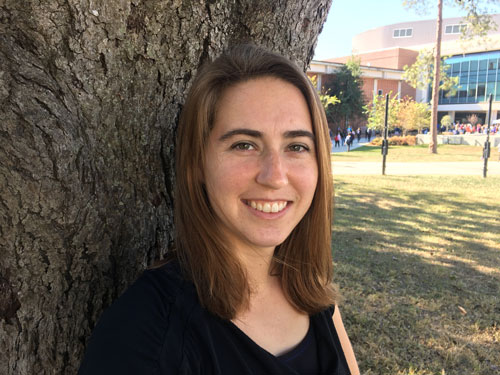By: Kirsten Romaguera, 352-294-3313, kromaguera@ufl.edu
GAINESVILLE, Fla. — University of Florida researchers have opened the second round of surveys on COVID-19’s impact on the state’s agriculture and marine industries, intended to capture changes in operations for the first half of the year.
The Assessment of COVID-19 Impacts on Florida surveys were first deployed in mid-April and closed in mid-May, offering a glimpse at the changes and uncertainty that came with the early days of the pandemic. In total, more than 1,500 respondents across five sector-specific surveys shed light on how their businesses were faring just as statewide stay-at-home orders were in full effect. Reports on the findings are being finalized now and will soon be made available.
Similar industry groups will be targeted for the second round of surveys, defined as follows:
- Agriculture and aquaculture production (broadly defined to include crop production, forestry/timber, nursery and greenhouse operations, agritourism, beekeeping, etc.); survey: tinyurl.com/uflsurvey-round2-agaquaculture
- Commercial fishing; survey: tinyurl.com/uflsurvey-round2-fishing
- Charter/For-hire operations; survey: tinyurl.com/uflsurvey-round2-charter
- Seafood wholesale dealers; survey: tinyurl.com/uflsurvey-round2-seafood
- Marine recreation support businesses; survey: tinyurl.com/uflsurvey-round2-recreation

“We were satisfied with the response rate of the first round of surveys, but I know there are experiences and impacts that we weren’t able to capture in the first round, especially when it came to specific commodities or sectors,” said Christa Court, assistant professor of regional economics in the UF/IFAS food and resource economics department. “Together, Florida’s agriculture and marine industries are a significant contributor to the state’s economy, but what makes our state unique is the diversity of activities and products that these industries engage in and produce. The more data we can collect from producers and operations of all types, the more insights we can provide on the variety of ways each of the sectors are being uniquely impacted by and adapting to the COVID-19 pandemic. It’s important that we find as many pieces of this puzzle as possible to understand implications for the broader food system and the economy.”
Survey questions have been refined to make it as easy as possible for respondents to complete the survey while providing the information necessary for a detailed valuation of losses. Some questions might look familiar from the first round; however, in most cases, adjustments were made to account for the more nuanced impacts of the pandemic scenario.
Court acknowledges that hurricane season is also a complicating factor for this second round of surveys. The UF/IFAS Economic Impact Analysis Program, which she directs, also conducts post-hurricane analyses.
“Even though we saw in the first survey that the pandemic affects these sectors quite differently than natural disasters such as hurricanes, there’s a potential for compounding disasters in this next survey period,” she said. “We hope we don’t have to account for that, but we are prepared for the possibility.”
As with the first round of pandemic-related surveys, Court is joined by fellow FRE faculty Andrew Ropicki and John Lai. Ropicki, an assistant professor of marine economics who also has a Florida Sea Grant appointment, will again lead the marine survey analysis. Lai, an assistant professor of agribusiness, focuses on the agriculture portion.
In addition, based on responses from the first round of surveys, there is an ongoing collaboration between UF/IFAS, Florida Gulf Coast University, and Florida A&M University to conduct interviews with industry professionals. This effort spans across all segments of the food system, from input suppliers, to producers and processors, to restaurant owners, and everything in between. Previous survey respondents who expressed interest in sharing more about their experiences during this pandemic have been contacted and additional participation is welcomed. Industry professionals in agriculture or food-related sectors who are interested in sharing their stories and experiences should contact David Outerbridge, County Extension Director in Lee County, at douterbridge@ufl.edu or (239) 533-7512.









